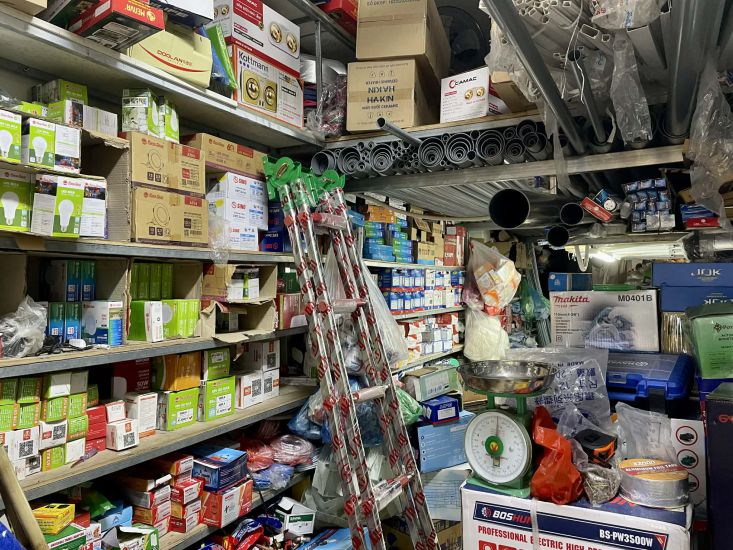Users confused about the origin of goods
Walking around traditional markets, products with big brand names such as Dior, Chanel, Gucci... are publicly sold.
Mr. Do Cong Minh (30 years old, Hai Phong) frankly shared: Ex expensive brands often set up stores in large shopping malls, with high site costs and brand value. At the traditional market, brand-name products are also sold, with prices only a few hundred thousand dong, making me suspicious about the quality".
Pham Thu Giang (23 years old, Hanoi) felt confused when "hunting" for successful products from livestreams of influential people, but the place of ordering was not a genuine brand.
"I waited for many hours to order the mask at a "bargain" price, but when I received the goods, I found that the sender was not a genuine brand. The previous two livestream purchases were both standard, so this time I immediately doubted the name of another store. Because the product was used directly on the face, I decided to return it immediately, not daring to take any risks" - Ms. Giang shared.
Unlucky like Ms. Giang, Nguyen Bao An (20 years old, Hai Phong) "wrongly bought" counterfeit goods, counterfeit brands and left consequences when using them.
"I have used this conditioner many times, but this time I tried ordering it at another store on the e-commerce platform. When I opened the box and tried it, I noticed a strange smell and lipstick; after three applause, my lips started to swell and peel. I immediately responded and complained, but immediately the store was locked by the trading floor, so I could not do anything more" - An recalled.

Applying technology to trace the origin of goods
Currently, traceability of goods is becoming one of the important tools in protecting the market and consumer rights. However, according to the representative of the Domestic Market Management and Development Department, Ministry of Industry and Trade, in reality, there are more than 30 units providing different traceability solutions, leading to fragrance, difficulties in unified management and application.
From the perspective of the Chairman of the Vietnam Blockchain and Digital Assets Association, Mr. Phan Duc Trung looks at the application of strategic technology in tracing the origin of goods. AI helps process smart, interactive and emotional data, while Blockchain ensures consistency, authentication time and consensus processing.
Mr. Trung also noted that implementation costs are a decisive factor in feasibility: "Blockchain will be of no value if costs are not controlled. Standarization, reducing recording and authentication costs will help traceability costs almost go to zero".
The Chairman of the Vietnam Blockchain and Digital Asset Association warned that using many different applications will create many standards, disjointed databases and create latency.
According to Mr. Nguyen Duc Le - Department of Domestic Market Management and Development, Ministry of Industry and Trade: "It is necessary to consider the issue of traceability as a top priority.Consumer protection starts with clearly defining the origin and quality of products, preventing counterfeit goods and goods from infringing on copyright".
Mr. Le also said that to avoid the situation where each business develops its own traceability software, it is necessary to have a common, comprehensive application, helping authorities such as the Department of Market Management and Development, the Ministry of Public Security, and the Tax sector to trace information using professional expertise and smart devices without having to wait for feedback from consumers.
The application of advanced technologies such as AI, Big Data, IoT will help detect violations early from the time the enterprise puts the product into production, instead of only detecting them when the product is already on the market.
The management agency believes that in the context of switching from pre-inspection to post-inspection, businesses need to proactively comply with the law. A unified traceability system will help monitor origin, technical standards and protect consumers right from the shopping stage. The Ministry of Industry and Trade is developing a circular on food traceability and plans to develop a warning application when the product expires or is at risk of being unsafe.











